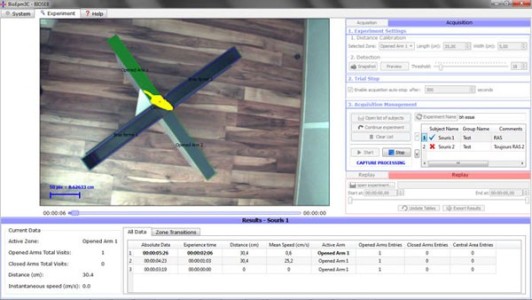Authors
M. Mitschelen, H. Yan, J.A. Farley, J.P. Warrington, S. Han et al.
Lab
The University of Oklahoma Health Sciences Center, Reynolds Oklahoma Center on Aging, Oklahoma City, USA.
Journal
Neuroscience
Abstract
Numerous studies support the hypothesis that deficiency of insulin-like growth factor I (IGF-1) in adults contributes to depression, but direct evidence is limited. Many psychological and pro-cognitive effects have been attributed to IGF-1, but appropriate animal models of adult-onset IGF-1 deficiency are lacking. In this study, we use a viral-mediated Cre-loxP system to knockout the Igf1 gene in either the liver, neurons of the CA1 region of the hippocampus, or both. Knockout of liver Igf1 reduced serum IGF-1 levels by 40% and hippocampal IGF-1 levels by 26%. Knockout of Igf1 in CA1 reduced hippocampal IGF-1 levels by 13%. The most severe reduction in hippocampal IGF-1 occurred in the group with knockouts in both liver and CA1 (36% reduction), and was associated with a 3.5-fold increase in immobility in the forced swim test. Reduction of either circulating or hippocampal IGF-1 levels did not alter anxiety measured in an open field and elevated plus maze, nor locomotion in the open field. Furthermore, local compensation for deficiencies in circulating IGF-1 did not occur in the hippocampus, nor were serum levels of IGF-1 upregulated in response to the moderate decline of hippocampal IGF-1 caused by the knockouts in CA1. We conclude that adult-onset IGF-1 deficiency alone is sufficient to induce a depressive phenotype in mice. Furthermore, our results suggest that individuals with low brain levels of IGF-1 are at increased risk for depression and these behavioral effects are not ameliorated by increased local IGF-1 production or transport. Our study supports the hypothesis that the natural IGF-1 decline in aging humans may contribute to geriatric depression.
BIOSEB Instruments Used
Elevated Plus Maze : EPM3C - 3 clicks only ! (BIO-EPM3C)
Source :
http://www.sciencedirect.com/science/article/pii/S0306452211004428

 Pain - Thermal Allodynia / Hyperalgesia
Pain - Thermal Allodynia / Hyperalgesia Pain - Spontaneous Pain - Postural Deficit
Pain - Spontaneous Pain - Postural Deficit Pain - Mechanical Allodynia / Hyperalgesia
Pain - Mechanical Allodynia / Hyperalgesia Learning/Memory - Attention - Addiction
Learning/Memory - Attention - Addiction Physiology & Respiratory Research
Physiology & Respiratory Research











![Dynamic Weight Bearing 2.0 – Postural Module [Add-on]](https://bioseb.com/733-home_default/dynamic-weight-bearing-20-add-on-postural-module.jpg)
























 Pain
Pain Central Nervous System (CNS)
Central Nervous System (CNS) Neurodegeneration
Neurodegeneration Sensory system
Sensory system Motor control
Motor control Mood Disorders
Mood Disorders Other disorders
Other disorders Muscular system
Muscular system Joints
Joints Metabolism
Metabolism Cross-disciplinary subjects
Cross-disciplinary subjects CONFERENCES & MEETINGS
CONFERENCES & MEETINGS 